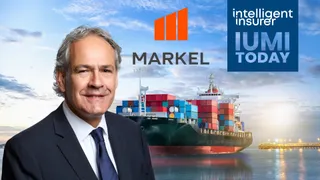
Marine insurers confront aggregation, sanctions and shifting trade patterns
From the Red Sea to the Malacca Strait, the world’s trade arteries are under pressure. Conflict, piracy, sanctions and shifting trade patterns are making risk management more complex than ever.
Key points:
Aggregation is reinsurers’ biggest concern
Pooling of risks remains essential
Sanctions add cost but bring comfort
“The biggest risks are the conflicts that we see today,” said Emiel Paaij, head of marine Europe at Markel. He pointed to the Black Sea, piracy off Somalia and looming flashpoints in Asia. Geopolitical volatility is disrupting global trade, yet for insurers it also opens unexpected doors.
“Uncertainty brings a lot of problems and a lot of insecurities, but it also brings opportunities,” he said. From energy transition to defence investment, the shifts triggered by today’s turmoil will reshape the marine and specialty insurance markets for years to come. Paaij noted that governments were pouring money into security and defence.
“Rheinmetall just opened a big factory in Germany,” he said. “That’s a big opportunity for many parties, but also for insurance companies that need to cover the transport of goods.”
At the same time, energy insecurity has created new momentum. “Is it time for a transition?” Paaij wondered. “Investment has already been made, but the appetite has slowed. It will surely return, and bring in opportunities for the renewables, energy and marine markets.”
The risks, however, are equally stark. “If two very large crude carriers collide in the Malacca Strait and there is pollution and wreck removal, at least 25 percent of world trade would be affected,” he said.
“What if a terrorist organisation sees that as a very attractive opportunity?”
Where the next risks may emerge
Paaij warned that the next flashpoints may already be brewing; the China-Taiwan conflict being a prime example. He reflected on what the outcome could mean for shipping routes. “Can goods still be shipped from China to Europe or the US? That is a real concern.
“What about India and Pakistan, or India and China? And what happens when the Ukraine situation is resolved—will there be a future threat from Russia?”
For insurers, these uncertainties translate directly into changing risk profiles and shifting supply chains. Regulatory complexity adds another layer. Sanctions checks now require insurers to scrutinise every client, trade route and cargo detail.
“It creates a lot of extra paperwork, which basically means higher costs,” he said. “Yet if we do this in the right way, we can be sure that everything is checked. The clients know their assets are secure, and the regulators know everything is compliant. That comfort is valuable.”
Reinsurers, meanwhile, are focused on aggregation. “The first signs you always see in case of conflicts are reinsurers knocking on the door and asking, please tell us what your book looks like,” Paaij said.
“They worry a lot about aggregation. One client can come through different channels, and the same interests can end up in the same port at the same time.”
Technology is helping, but progress is uneven. New tools allow insurers to map exposures by vessel and region but still, Paaij wants more.
“Balancing geopolitical risk is very much about pooling of risk.”
“What I would like to see is chips inserted into parcels, combined with invoices, pallets, containers and ships, all linked through blockchain,” he suggested.
“Then it should be possible to know the exact value of goods in a specific location at a specific time. We’re not there yet, but it is a challenge for the next couple of years.”
Ultimately, he argued, insurers must fall back on the oldest principle of all: pooling.
“Balancing geopolitical risk is very much about pooling of risk between clients and insurers, and then using modern technology to understand exposures,” he stated. “That combination can give us a better balance of exposure in these volatile geopolitical times.”
Opportunities abound in areas such as renewable energy, political risk and trade credit. Paaij also sees potential in parametric solutions: cover that pays out if ports are shut by war or unrest.
“Supply chains will change,” he said. “How can we help our clients insure the changes that will happen there?”
For Paaij, the job’s unpredictability is what makes it exciting. “I come into the office and, to some extent, I have no idea what will happen today or tomorrow,” he said. That makes my job very interesting.”
For more news from IUMI Today, click here.
Did you get value from this story? Sign up to our free daily newsletters and get stories like this sent straight to your inbox.
Editor's picks
Editor's picks
More articles
Copyright © intelligentinsurer.com 2024 | Headless Content Management with Blaze

